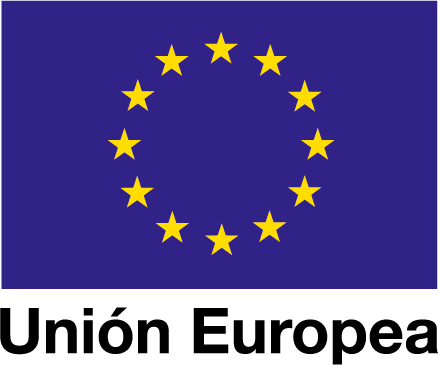LIBRA INTEGRATIONS – Galileo Module
The tools you use fully integrated with LIBRA
LIBRA constitutes a SIIE (Intercompany Information System), which enables the integration required by the company with all the agents in the value chain with whom it operates, optimizing and integrating all the flow of information the company needs in its daily operations.
LIBRA has interfaces developed to integrate all types of devices, scales, labelers, automated warehouse systems, production machines, or any element capable of receiving or generating information. Below are the details of LIBRA’s integrations with:
Automated or Robotic Warehouses
LIBRA has integrations with some of the most commonly used storage systems across different sectors, such as Kardex, Knapp, Ulma, and others.
Automation of Maritime Container Tracking – Logistics
LIBRA has integrations with some of the most widely used container tracking systems globally across various sectors, such as Freight Intelligence Maritime from Kaleido Tech.
Weighing Systems and Scales
It is common in most projects to integrate LIBRA with weighing systems, both in warehouses and at point of sale.
Logistics Operators
In recent years, there has been an increase in the demand for direct integration of LIBRA with logistics operators to automatically generate shipping communications, labels, etc.
Industrial Machines and Equipment
In the industrial sector, it is common to have direct communication between LIBRA and the existing plant equipment for sending work orders or collecting information generated by the machines.
Labeling Systems
In certain sectors, specific labeling systems are used, which require integration with LIBRA.
Plant Data Collection Systems
Many industries have plant data collection systems that allow them to monitor a large number of parameters. LIBRA has been integrated with several of the most widely used MES systems in the market.
Finite Capacity Planning
LIBRA has been integrated with finite capacity planning systems, such as PREACTOR from Siemens.
Call Center Switchboards and Systems
The CRM of LIBRA has been integrated with various switchboard systems to automate customer service, especially in telemarketing environments.
Online Marketing Platforms
The CRM of LIBRA has been integrated with various online marketing platforms.
Customer Loyalty Platforms
The POS module has been integrated with loyalty platforms chosen by our clients.
E-commerce Portals
It is common nowadays for companies to use an e-commerce portal. In many cases, LIBRA provides this functionality, but integrations with other systems, such as PrestaShop or Magento, have also been carried out.
Electronic Invoice
LIBRA has an electronic invoice module, but depending on the country where the implementation takes place, integration with legal agents involved in the electronic invoicing process may be required.
POS (Point of Sale)
Although LIBRA has a POS module, in some of our projects, we need to integrate with POS systems used by the client, whether they are custom developed or from third-party companies.
Payroll
Although LIBRA has its own payroll solution, in some projects, the client requests integration with their existing payroll system. This integration primarily affects the accounting module.
Attendance Control Systems
Although LIBRA has its own attendance control solution, in some projects, the client requests integration with their attendance control module. Additionally, in LIBRA’s own solution, integration with the common time-tracking devices available on the market is required.
Banking
A integration has recently been developed with the AFTERBANKS banking aggregator to automatically download banking information. Direct integrations with various institutions have also been carried out, as well as integration with some of the treasury management programs available on the market.
Public Administration
LIBRA is integrated with public administration in all the countries where we operate, to varying degrees. This integration typically includes the submission of official forms, VAT communication, invoicing, payroll, etc.
Electronic Data Interchange (EDI)
LIBRA has a standard EDI interface for exchanging documentation between companies, allowing for customization and mapping of the messages used in each case, such as delivery notes, invoices, orders, confirmations, etc.
Integration with Other ERPs and CRMs
In larger companies, integration of LIBRA with other ERPs is often required. Additionally, LIBRA has replaced ERPs like Dynamics, SAGE, and SAP in many companies, carrying out data migration projects from these systems, which has provided significant experience in this area.
Various Web Services
Currently, communication between systems is based on Web Services. LIBRA has a specific module called GALILEO that enables the implementation of Web Services, facilitating integration with heterogeneous systems.
Document Management Systems
Although LIBRA has an integrated Document Management module, in some projects, integration with other systems on the market has been necessary.
Office Automation
The most common office automation integration is with Office, Open Office, and Google, which includes integration with word processing, spreadsheet, email, and calendar systems, primarily.
The most common office automation integration is with Office, Open Office, and Google, which includes integration with word processing, spreadsheet, email, and calendar systems, primarily.
Search Engines
In the latest versions of LIBRA, direct search engine integration has been included to facilitate the integration of existing information on the internet, based on searches of codes registered in LIBRA. The most common integration used by our clients is with Google.
Do you want to know which tools integrate with LIBRA ERP?
Fill out this brief form to receive more information:
One of our advisors will contact you as soon as possible.




Social Networks
Social Networks
LIBRA has integration with social networks such as X.